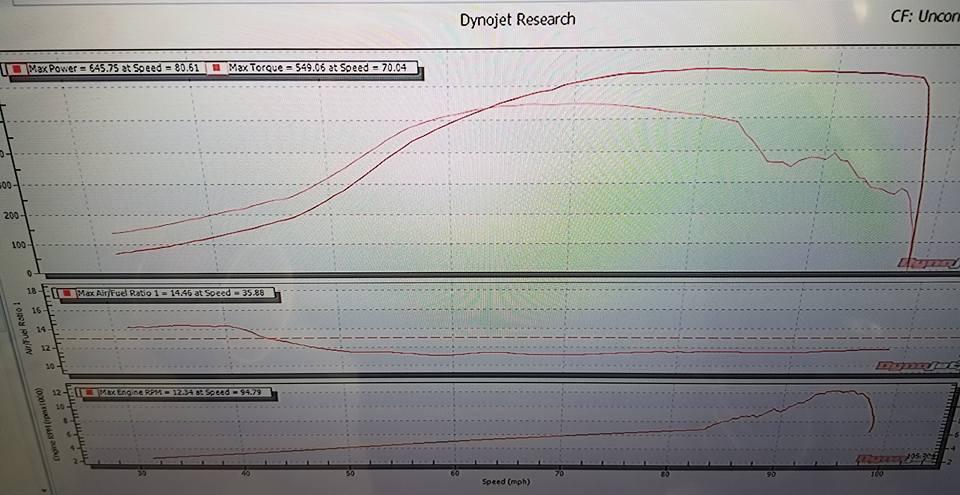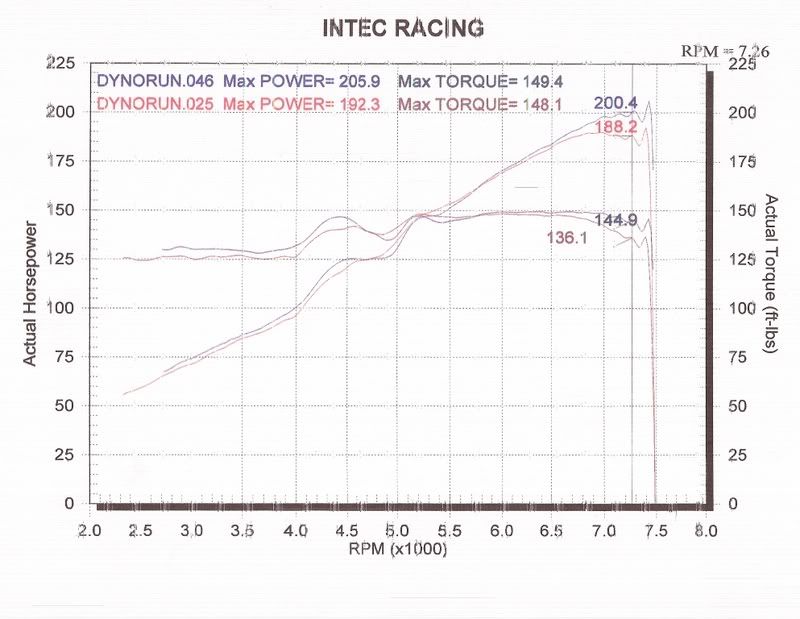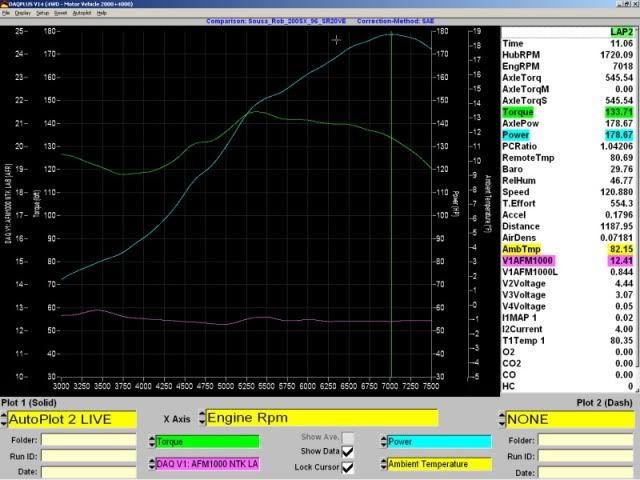EVO makes 550ft*lbs, 32-36psi, E85, 2.0L

The guy who claims 370ft*lbs of torque at 17psi is also basically saying that an extra 18psi of boost, 0.2L of displacement and E85 is only worth 155ft*lbs of torque
When we know E85 plus 0.2L is worth around 50-70ft*lbs in and of itself, is like saying an extra 18psi is only good for 80-90~ ft*lbs of torque (non logical)
I looked through the srve thread and there does not seem to be anyone running lower boost pressures to compare with.
However it is extremely easy to find N/A Setups which clearly show 100% cylinder fill at 0psi of boost
sr20ve

sr20ve

sr20ve

sr20ve

Notice no matter what they all approach 150 ft*lbs at 0psi, approaching 100% cylinder fill with typical gasoline. In calculus, we would call this a"limit".
You can
approach the limit, and be
under the limit.
To use this math to your advantage simple multiply in the pressure ratio to find new torque, taking into account any friction, adiabatic efficiency, fuel quality
for example:
If I wanted to know how much torque at 15psi of boost I could say
15/14.5 = 1.034 + 1atm = 2.034 total pressure ratio
150*2.034 = 305ft*lbs
now, lets account for losses such as friction and adiabatic efficiency, say we lost 5% due to non component head losses (pump head loss from airpath friction, intercoolers, etc) and another 1% due to slight temp rise persisting after a
non-perfect ambient temperature intercooling and 4% from other sources we can't imagine all of them, exhaust gas pressure pumping loss or something. Realize that there will be
some additional losses. It doesn't matter exactly
what they are, only that we expect some form of degraded output, it might even be a different percentage at each individual RPM. You can spend alot of time and effort lowering that percentage and improving efficiency, and even the atmosphere from day to day will influence so it isn't always the same number day to day either. Lets figure 10% for our rough calculations next though to keep it simple.
305 * .90 = 274ft*lbs of torque
Lets do it for 18psi now
18/14.5 = 1.24 + 1atm = 2.24
150*2.24 = 336ft*lbs
minus 10% for losses as above
336 * .9 = 302ft*lbs
Remember we are already working with torque at the tires so no need to compute drivetrain losses. Just keep in mind losses maybe higher in RWD platforms by a couple percentage.
If we removed the intercooler completely our adiabatic would be only something like 70%, it could be 20% less torque at the same boost when IAT would be much higher going into the engine (it comes out of a compressor 250*F or more at the pressures we are talking) and therefore air density would be lower. This why N/A torque comparisons are so powerful; they give you the torque production limit of a given displacement engine when the intercooler is 100% efficient (no boost, no intercooler) but there may not always be minimal air pathway resistance/friction and different engines have different frictions (some are lighter like Honda). There is typically some air heating as the air moves through the engine bay (so not quite ambient temp) and it could indeed be cooler coming out of an intercooler at ambient temp. Also remember the power lost on the intake stroke is used to draw air into the engine is heavily compensated for in a turbo application because of the kinetic energy of the incoming air stream towards the engine.